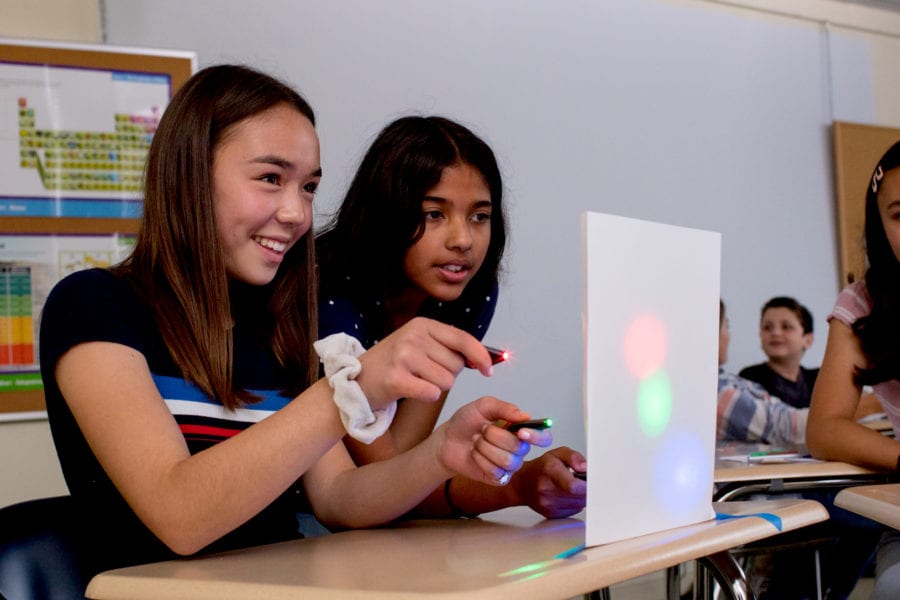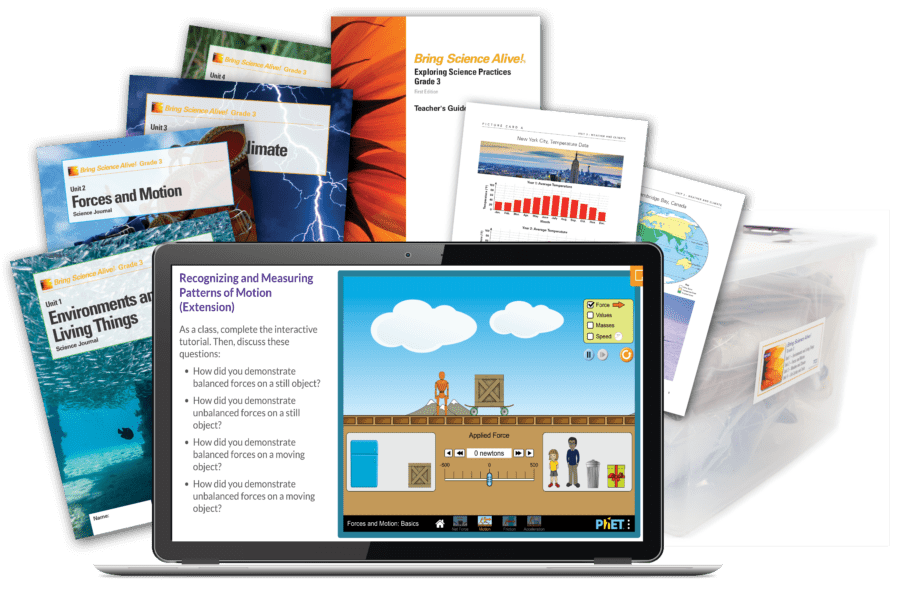Elementary Science
Students dig into natural phenomena with our interactive science curriculum. They observe shadow patterns, dig for fossils, and engineer lunchbox alarms.
TCI’s science curriculum includes hands-on investigations, materials kits, and print and online science textbooks. With it, teachers of every grade level can Bring Science Alive! in their classrooms.
TCI’s Bring Science Alive! programs are designed to meet the Next Generation Science Standards (NGSS). Each unit is driven by a unique storyline that introduces an anchoring phenomenon that ties into the performance expectations.
From intriguing phenomena that get students asking questions to robust hands-on investigations, TCI’s programs make NGSS come alive.

Explore different facets of the anchoring phenomenon with hands-on investigations. Our lessons are easily modified based on your schedule and students’ needs.

TCI’s programs include many reading tools, strategies, and activities to provide extra support for students. Each lesson includes differentiation to support English learners, advanced learners, and learners with special education needs.
Explore our English language support features
Using our print products and digital platform, TCI’s flexible curriculum allows you to transition seamlessly from the classroom to blended learning environments.

Discover how teachers across the country use TCI’s science programs to inspire and engage students. Explore stories from TCI teachers

Are you ready to Bring Science Alive! in your classroom? Reach out to access reviewer resources, get a quote, or explore samples, including print materials, ready-to-use kits, and TCI’s digital platform.